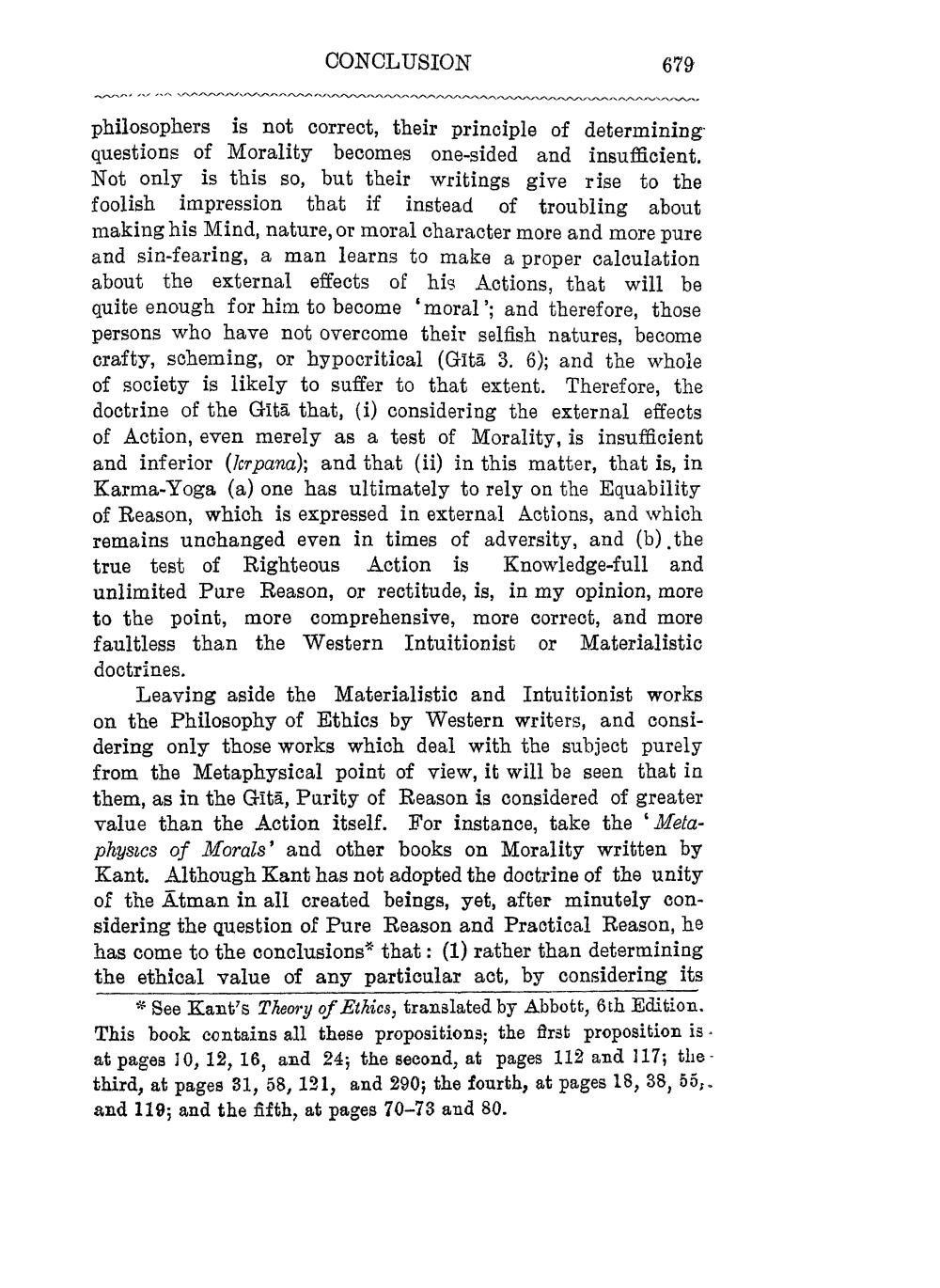________________
CONCLUSION
679
philosophers is not correct, their principle of determining questions of Morality becomes one-sided and insufficient. Not only is this so, but their writings give rise to the foolish impression that if instead of troubling about making his Mind, nature, or moral character more and more pure and sin-fearing, a man learns to make a proper calculation about the external effects of his Actions, that will be quite enough for him to become 'moral'; and therefore, those persons who have not overcome their selfish natures, become crafty, scheming, or hypocritical (Gītā 3. 6); and the whole of society is likely to suffer to that extent. Therefore, the doctrine of the Gītā that, (i) considering the external effects of Action, even merely as a test of Morality, is insufficient and inferior (Icr pana); and that (ii) in this matter, that is, in Karma-Yoga (a) one has ultimately to rely on the Equability of Reason, which is expressed in external Actions, and which remains unchanged even in times of adversity, and (b).the true test of Righteous Action is Knowledge-full and unlimited Pure Reason, or rectitude, is, in my opinion, more to the point, more comprehensive, more correct, and more faultless than the Western Intuitionist or Materialistic doctrines.
Leaving aside the Materialistic and Intuitionist works on the Philosophy of Ethics by Western writers, and considering only those works which deal with the subject purely from the Metaphysical point of view, it will be seen that in them, as in the Gītā, Purity of Reason is considered of greater value than the Action itself. For instance, take the 'Metaphysics of Morals' and other books on Morality written by Kant. Although Kant has not adopted the doctrine of the unity of the Ātman in all created beings, yet, after minutely considering the question of Pure Reason and Practical Reason, he has come to the conclusions* that: (1) rather than determining the ethical value of any particular act, by considering its
* See Kant's Theory of Ethics, translated by Abbott, 6th Edition. This book contains all these propositions; the first proposition is. at pages 10, 12, 16, and 24; the second, at pages 112 and 117; tlie - third, at pages 31, 58, 121, and 290; the fourth, at pages 18, 38, 55;. and 119; and the fifth, at pages 70-73 and 80.




